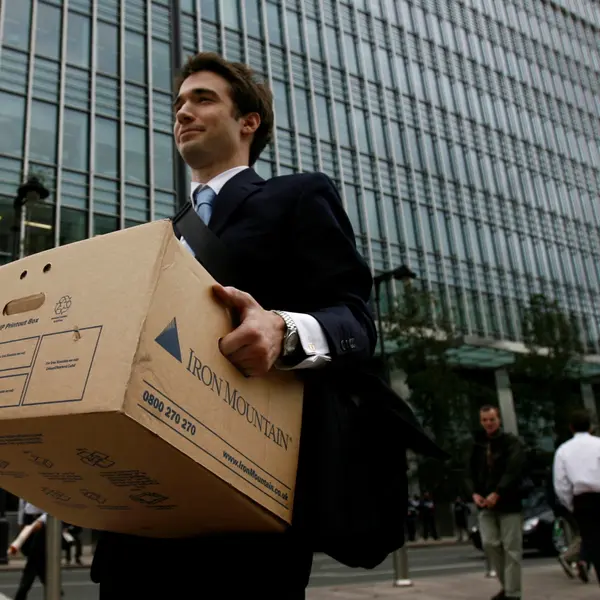
Lehman Brother’s 17 Years On - Still In The Shadow Of The Banking Crisis
15 September 2025
We saw it on the news - workers leaving Lehman Brothers’ offices with their belongings in carboard boxes. The huge investment bank collapsed on September 15th 2008 and we’re still living in the shadow of those events.
They called it a sub-prime mortgage crisis but in reality the underlying productive economy had been weak for years. The rate of profit in the old days of the post-war boom were long left behind and aging capitalism was getting sluggish.
In fact, it was the weakness in the underlying productive economy that had seen capital seek profits in speculation, particularly in housing, creating obscene bubbles.
Lehman Brothers’ masked itself as an investment bank but was really just a hedge fund that had dished out mortgages like a crack cocaine dealer during the noughties.
The banking crisis spread like wildfire not just because it sent panic across the wolrd economy but because the underlying economic conditions were the same everywhere.
In Ireland the first phase of the Celtic Tiger had been based on production of pharmacueticals and other goods. When that faltered money chased a profitable return fuelling a massive housing bubble. This was assisted by government policies that favoured freedom for rich investors above all else.
Anglo Irish Bank in particular took billions from French and German banks and threw it at developers, landlords and investors. When the whole pathetic game came crashing down the rich used their control over the state machinery to leverage deby repayments onto working people.
The result wasn’t just a decade of austerity and the hollowing out of working class communities but also the hollowing out of the political system. The establishment parties won the economic war but lost political support.
This hollowing out of the capitalist political game has had consquences we are dealing with to this day. The wave of resistance to the banking crisis was overtly to the left but it was led by reformists like Syriza in Greece or those with no political strategy like the Indignados in Spain or the Occupy movement in the USA.
When this wave hit the state it broke and fell back. The right could re-take the initiative. If the wave of revolt after the banking crash was a revolution but very much in miniature, then the counter revolution in miniature began, accelerated by the 2016 election of billionaire Donald Trump to the US Presidency.
In Ireland the establishment were terrified by their loss of seats and tried to posture as friends of progress by offering marriage equality and repeal, this led to some of their grassroots breaking away further to the right.
The pandemic and subsequent lockdowns accelerated the already visible downward trend in working class mobilisation.
The world we live in now has been shaped by the crash of 2008. But there was nothing inevitable about the political outcomes of that economic crisis. Parties, trade unions, social movements, the bosses and their fascist minions all entered into conflict to shape the outcome.
The reformist limitations of those who led those movements handed the initiative back to the system and in some cases to the far right.
We have to learn the lessons of those years and prepare a future fightback by the working class that doesn’t rise like a mighty tide only to break on the capitalist state machine. We need a movement of the working class that will keep on rising until our class is in the driving seat of the planned economy and economic crisis is a thing of distant memory.
That’s the world we’re fighting for.
 RED NETWORK
RED NETWORK